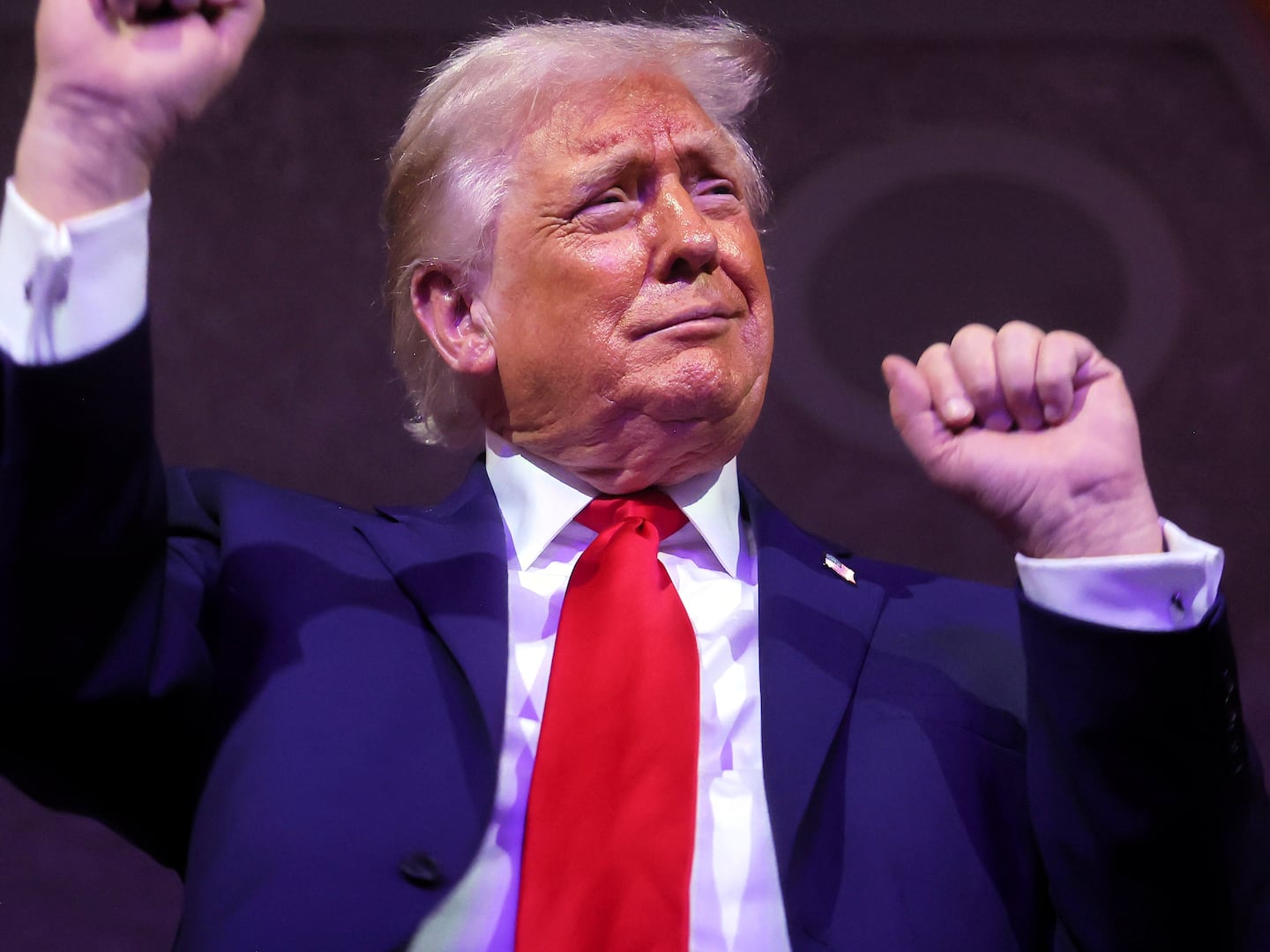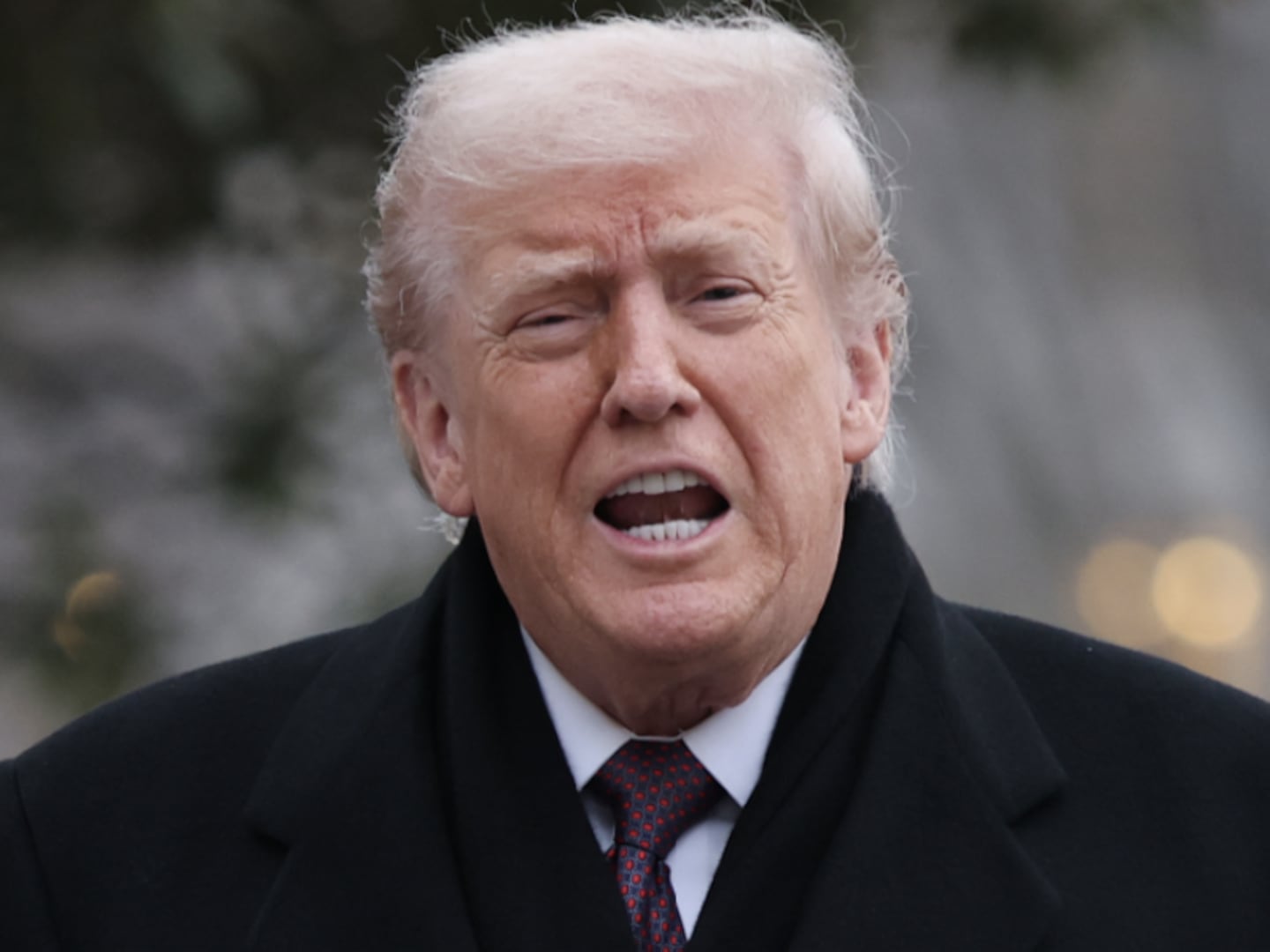The Republican debate in Boulder, Colorado, on Wednesday will be crucial for several candidates mired in single digits and with little to show after months of campaigning, but for Rand Paul, it may be his last chance to make the case that he should remain in the race.
Senate Majority Leader Mitch McConnell, who has formally endorsed Paul’s candidacy, has been pressuring him to direct his attention to his Senate seat, which he’s in jeopardy of losing, rather than keep chasing dreams of the White House which now seem out of his grasp, according to Politico, and so has the NRSC. If Paul doesn’t have a breakout performance in the debate, it will be hard for him to justify wasting time and money and jeopardizing McConnell’s Senate majority, all for what at a certain point may begin to look like a vanity project disguised as a bid to save the Republic.
So on Thursday morning the candidate was holed up in the Kennedy Room, a drab conference room on the second floor of the Crowne Plaza Hotel in Old Town, Alexandria, Va., where he would spend two hours preparing for Wednesday night in Colorado.
The space was set up like a mock stage, with Paul at a flimsy lectern dressed in a pink shirt and blazer. Looking on from the gallery were members of the Rand brain trust in charge of rescuing the senator from himself. Among them: Chip Englander, the campaign manager; William Henderson, Paul’s chief of staff; Elise Jordan, a member of the communications team; and advisers Chris LaCivita, Doug Stafford, Steve Munisteri, and Tony Fabrizio.
Debate prep for Paul, often, is just done by the candidate himself—he’s a voracious reader, anyone in his orbit will tell you, he’ll read the phone book, he’ll read mean Tweets, he’ll read anything. Other times, it’s a simple discussion with his staff. But there are some occasions, like in the Kennedy Room on Thursday, where it’s a scrimmage: Paul’s at the lectern, taking questions, kicking the floor with his feet and throwing his arms in the air like he will in front of the whole country on Wednesday night.
One adviser, Doug Stafford, expressed mild frustration that the majority of Paul’s questions to date had been centered on foreign policy when his political career has been just as much about the issue of the debt and the Federal Reserve. They’re hoping, Stafford said, that the CNBC debate will be the chance for Paul to talk about those things he hasn’t had the chance to yet. “I think a lot of people that are going to be watching having heard his views on these issues,” Stafford said.
Randy Barnett, a constitutional law professor at Georgetown and a member of Paul’s briefing team, explained that debate prep usually goes like this: Paul’s advisers run down the list of topics that might come up, and they generate possible questions that could be asked by the moderators or the other candidates. Paul gives his answer, and his advisers tell him how it could be a better answer.
So far, Barnett said, the questions they’ve come up with “have been pretty good at predicting what happened in the last debates.” In particular, they anticipated that Trump would attack Paul for his low poll numbers. “We didn’t expect it to happen immediately,” he said, but Paul was ready for it.
Barnett said the prep sessions were about figuring out a way to package Paul’s beliefs in the most effective way. “He already has in mind what he thinks about all of these things,” Barnett said, “and we then comment on how he expresses it and how it might be shaped better.”
Paul “is not there to get instruction from anybody,” Barnett said, but he will sometimes ask for his opinion—not that he’ll necessarily take it.
Another adviser who asked not to be named said that Paul can sometimes get lost in the weeds, and reeling him in has been a focus of for his team.
“He’s big on nuance,” the adviser said. “It seems hard to overload him with detail, put it that way. But it’s good for him to express it in as concise a fashion as possible.”
Candidates are always better in theory. This time last year, Paul was in the top tier of would-be presidents, considered “the most interesting man in politics.”
The crowding of the field, coupled with the media oversaturation of Paul’s nascent candidacy, gave way to a nosedive in his popularity.
It wasn’t, it seemed, that people didn’t like him. It was worse than that: They didn’t care about him. And all of Paul’s attempts to recapture the public’s attention have been, to date, failures.
In May, he held a blockbuster filibuster of the renewal of the PATRIOT Act; in July, he printed out the 70,000-page United States tax code and filmed himself putting it in a woodchipper, slicing it with a chainsaw and setting it on fire; in October, he live-streamed an entire day on the campaign trail in the middle of Iowa, which he admitted was a “dumbass” idea (and later sold shirts memorializing the bad decision on his website).
Despite all these gimmicks, Paul’s numbers have ticked steadily downward.
But where Paul is guaranteed a captivated audience is on the debate stage. The first two combined had 47 million viewers. They may not be there for Paul specifically, but they’ll hear him no matter what.
As the philosophical candidate of new ideas, the debates should theoretically be showcasing Paul’s strengths. Instead, he’s been an afterthought.
Paul’s performance during the first debate, hosted by Fox News in Cleveland in August, was memorable for its volume. As in, he shouted a lot, and with little effect.
It started with the first question, after Donald Trump raised his hand to say he wouldn’t pledge to support the eventual Republican nominee and he wouldn’t pledge not to run as an independent. “This is what’s wrong,” Paul cut in. “I mean, this is what’s wrong! He buys and sells politicians of all stripes!”
Later, Paul shouted down professional shouter Chris Christie, during an exchange about the PATRIOT Act. “Get a warrant!” he yelled. “I don’t trust President Obama with our records. I know you gave him a big hug and if you want to give him a big hug again, go right ahead!”
In the second debate, put on by CNN at the Reagan Library in California in September, Paul was more subdued.
Trump used his opening remarks as an opportunity to take a swipe at Paul’s poll numbers, but rather than shouting, he calmly responded with laughter. “Do we want someone with that kind of character, that kind of careless language to be negotiating with Putin? Do we want someone like that to be negotiating with Iran?” Paul called Trump “sophomoric” and moved on.
Later, asked what his Secret Service code name would be, he earnestly replied, “Justice Never Sleeps.”
Neither of these performances seemed to make much of a dent, good or bad, in Paul’s standing in the primary. After a small bump from the second debate, Paul’s numbers fell again, to an average of 3.2 percent.
The debates are a form of reality television, and as such they reward Trump-style put-downs and meme-worthy jargon—not nuanced discussions about government spying warrants or the Fed.
Having now learned this lesson twice, Paul’s campaign seems to acknowledge the need to change course and adapt his message to the dumbed-down medium.
“Imagine putting yourself in a position of a person who’s going on stage in front of 25 million people for intellectual combat,” Jordan told me of the pressure Paul, and every other candidate, is under to perform.
Intellectual combat of this magnitude is what Paul has been preparing for his entire life.
He’s the son of Ron Paul, the congressman and presidential candidate who used the 2007 and 2011 GOP debates to inspire a grassroots movement, the Ron Paul Revolution. He was weaned on the writings of Austrian economists that his dad gave him. In college, he was a prolific public critic—writing letters to the school newspaper and battling liberals on a range of issues.
In 2009, during his Senate campaign, Paul turned the Kentucky debate into one of national import by arguing that the race was really about President Obama’s policies. He mopped the floor with his opponent, Jack Conway, whose hand he refused to shake, saying he didn’t want to associate with someone who had attacked his religion.
And in the Senate, Paul first made a name for himself because he was, if not a powerful orator, at least one with stamina. It was his first filibuster, about drone policy in 2013, that cemented his status as a right-wing star.
But Paul hasn’t been able to create a similar moment for himself as a candidate, even as his beliefs position him in contrast to the other candidates on the debate stage.
Carly Fiorina was the breakout star of the second debate because she understands drama. She attacked Planned Parenthood in grotesque—though not especially accurate—detail, and she opened herself up and revealed a personal tragedy, that she had lost her step-daughter to drug addiction. Fiorina’s reward was vaulting into the upper echelon of the primary.
That may have just been luck or fate, but in previous cycles, candidates were similarly rewarded for their displays of emotion and their simplicity.
It’s a moment like Fiorina’s, or a series of them, that can revive a campaign that is withering in the wilderness of obscurity or sprawled out on death’s door. For Paul, a moment seems likeliest to occur when he manages to convey that his worldview—small “l” libertarian, non-interventionist—is not the stuff of fringe newsletters, but of common sense. That means speaking more generally and matter-of-factly than he is accustomed to.
Back in the Kennedy room, Paul walked over to the buffet table and poured himself a glass of water and continued his rehearsal.
Later, one of his advisers offered a word of caution: “It’s one thing running for the Senate or being in the Senate, but it’s different running for president. Nuance is not the best thing in a presidential campaign.”






